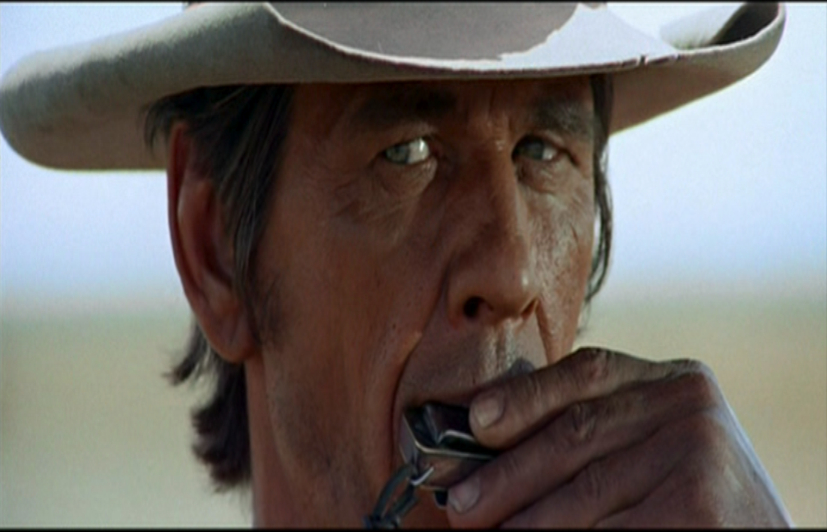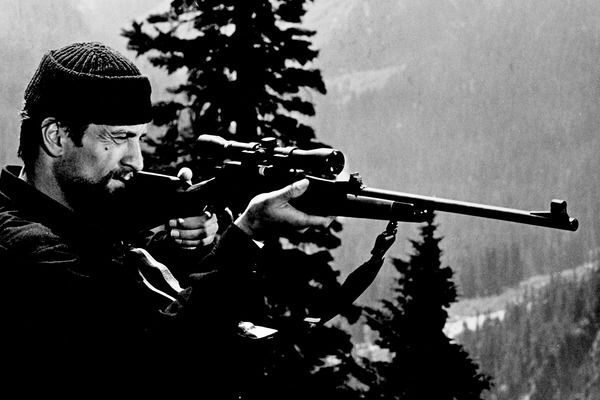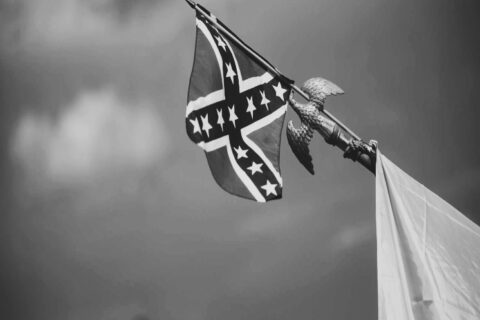One of my favorite “war” films is Michael Cimino’s 1978 masterpiece The Deer Hunter. I place “war” in quotation marks since that is how the film is normally classified, but it really isn’t a war film in the sense that Patton is – actual fighting takes up only a few moments of the runtime, there are more scenes set in Vietnam, but most of this is either in a POW camp or in the seedy areas of Saigon during the last days of South Vietnam. Instead, the film focuses on the lives of Russian-American steelworkers in southwestern Pennsylvania and how the Vietnam War forever changed it.
Every time I watch it, it reminds me of Dixie and all the people I know that have gone off to fight a war for the federal government, even though the characters are Russians from Pennsylvania. I don’t mean in the sense of those old James Carville quips that Pennsylvania is Pittsburgh on one end, Philadelphia on the other and Alabama in the middle, or that the state is “Alabama without blacks.” Nothing against them, they all seem like fine fictional characters that would be fun to drink with, but they are Pennsylvanian Russians, not Dixians, though I’m sure they would get along well with our people.
The film showcases how the Vietnam War destroys these men’s lives. They come back either mentally or physically unwell, and have no place to turn. They come back to a very different country than the one they fought for. Christopher Walken’s character, Nick, is particularly hard hit by the experience and ends up in Saigon visiting seedy gambling halls to play Russian Roulette (while a POW, he and his fellow soldiers are forced to play Russian Roulette for the amusement of sadistic North Vietnamese guards). Finally, he kills himself playing Russian Roulette in front of his friend Mike (Robert De Niro), who had gone into the gambling hall to save Nick. The scene that really gets me is when Nick is buried in the U.S. After his funeral, the other characters go back to the local bar to reminisce. It’s an incredibly somber tone until the bartender begins to sing “God Bless America” in honor of Nick, to which the other characters join in. The power of this scene is in how it shows that even though they and their loved ones were sent off to fight in a war they gained nothing from, they still retain a sense of patriotism and love for the United States – seen also in an earlier scene when an army doctor asks Nick if his name is Russian. “No, it’s an American name,” Nick replies.
Every time I watch the “God Bless America” scene, I am reminded of all the people I know that were sent off to fight in a war and came back missing a leg. I think of all the people I know that came back no longer being able to function. I think of all the people I know that came back and became alcoholics. I think of all the people that were discarded by the VA. I think off all the people that didn’t come back at all. I think further how these people came back to a radically different country than the one they fought for. I think how they came back to find their wives had cheated on them. I think about how they came back and were told that everything they loved is now racist and men they admired, who fought for the very same country, had to be discarded. Despite all of this, they still remain(ed) patriotic.
Stories like these, both in real life and in film, present Dixian Nationalists with a way in which we can reach out to our people, who have long served in disproportional numbers in the military. Simply put, if we are in charge, you would only be sent to war when it was absolutely necessary and it would actually pertain to defense. If you were sent to fight for your country, you can expect the very best medical care for any physical or psychological problems you may endure. When you get back, we will give you a say in what kind of country this will be, and we will damn make sure that a bunch of lowlifes won’t be able to commit violence against you. And, we won’t let them destroy statues of national heroes or dig up their graves, either. A Free Dixie will not send her sons to die in a hopeless and unwinnable war. When you come back, we will do everything we can to ease you back into society. The reason why is simple – the United States is not your country, Dixie is and Southerners will look out for their countrymen.
The Deer Hunter is a masterpiece. It is one of the best war movies ever made and one of the best films of the 1970s. I truly do put it in the same league as The Godfather, Network, and Taxi Driver. Part of its brilliance lies in that it is unconcerned with depicting war itself, as is often the case with war films, but rather what war does to an individual and a community, and the film’s focus on this sets it apart from not only most other war films in general, but also other Vietnam films like Apocalypse Now or Full Metal Jacket. Like I said, comparably little of this film takes place in Vietnam, and most of that does not show actual fighting.
The Empire has taken from us and given us nothing in return, but many of our people remain patriotic towards it. That patriotism isn’t necessarily wrong, but it is misdirected. You should be loyal to Dixie, not the American Empire. In a Free Dixie, with Dixian Nationalists in charge, things will be different. If you fight for Dixie, it will only be as a last resort, and when you return home, you will be taken care of. The nation you went off to protect will be preserved. We won’t ask you to fight foreign enemies, only to give your nation over to domestic monsters.
That is our promise to you, and it’s a promise we will keep.







‘Be loyal to Dixie, not the American (Yankee) Empire.’
Amen to that, brother.
I’m still wondering how S. Carolina elected a foreign female as governor.